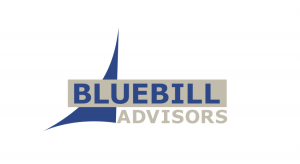Dear Reader:
I hope all is well.
We have been busy updating our website and I thought you deserved a quick update. In mid-May we woke up “NewsShark” and re-activated our curated news service which hasn’t been active for a while. It is available on our site here, as a feed, and on Twitter. We publish news multiple times a week, and will check with you at some point to see if you are interested in an email version. We have consolidated all of our content on our main site, improved site navigation, added back search, and have a new simplified category structure – all available from any page. Finally, we are using schema.org markup and experimenting with some additional features that it allows — you’ll notice some of them as you poke around. We’ll update you as we formally roll them out.
Now to this issue’s recommended reading…
Comparing human and machine perception
This article is a wonderfully clear and concrete example of how easy it is to incorrectly interpret data from comparisons between deep neural networks and human perceptions, and how to think about further experiments to expose potential misinterpretations. There is also a broader lesson here for evaluating machine learning algorithms.

There is a link to the full paper, but this summary by the authors is a valuable resource for non-specialists. Read More
Decentralized web developer report 2020
The decentralized web is an amorphous collection of technologies and projects that are not a near-term threat to today’s imperfect and increasingly centralized web. But it is encouraging to see so much activity dedicated to a more open web, and this report by Fluence Labs’ Evgeny Ponomarev is an excellent way to get a feel for the landscape of the players, the challenges, and what software engineers, researchers, and others think. This is not one of those promotional market research reports, and doesn’t gloss over the challenges. The raw survey data is included. Read More
The seven deceptions of microservices
Software architectures are not the sort of thing you create or change lightly. Even if you’re convinced a different approach would be better, there are inevitably unforeseen developmental and operational consequences / costs which can quickly multiply scarily as a function of the number of moving parts. Software architects and experienced software engineers know this, but the whole team should understand the pros and cons of such a change. Software engineer Scott Rogowski suggests some things to watch out for when considering moving to a microservices development model. Read More
Online content sharing – pay to play?
Article 17 of Directive (EU) 2019/790 on Copyright in the Digital Single Market (the “DSM Directive”), introduces a new content management and liability regime for online content-sharing service providers (“OCSSPs”) … Article 17 is one of the most controversial provisions of the DSM Directive. Its supporters view Article 17 as facilitating more licensing of copyright protected works online to generate remuneration for rightholders whose works are shared by users on profit generating online platforms, while its detractors argue that it goes too far and will have an adverse effect on freedom of expression and the proper functioning of copyright exceptions online. Read More
Also…
|
The Gilbane Advisor curates content for content technology, computing, and digital experience professionals. We focus on strategic technologies. We publish more or less twice a month except for August and December. We do not sell or share personal data.
Subscribe | Feed | View online | Privacy policy | Editorial policy
|

|


